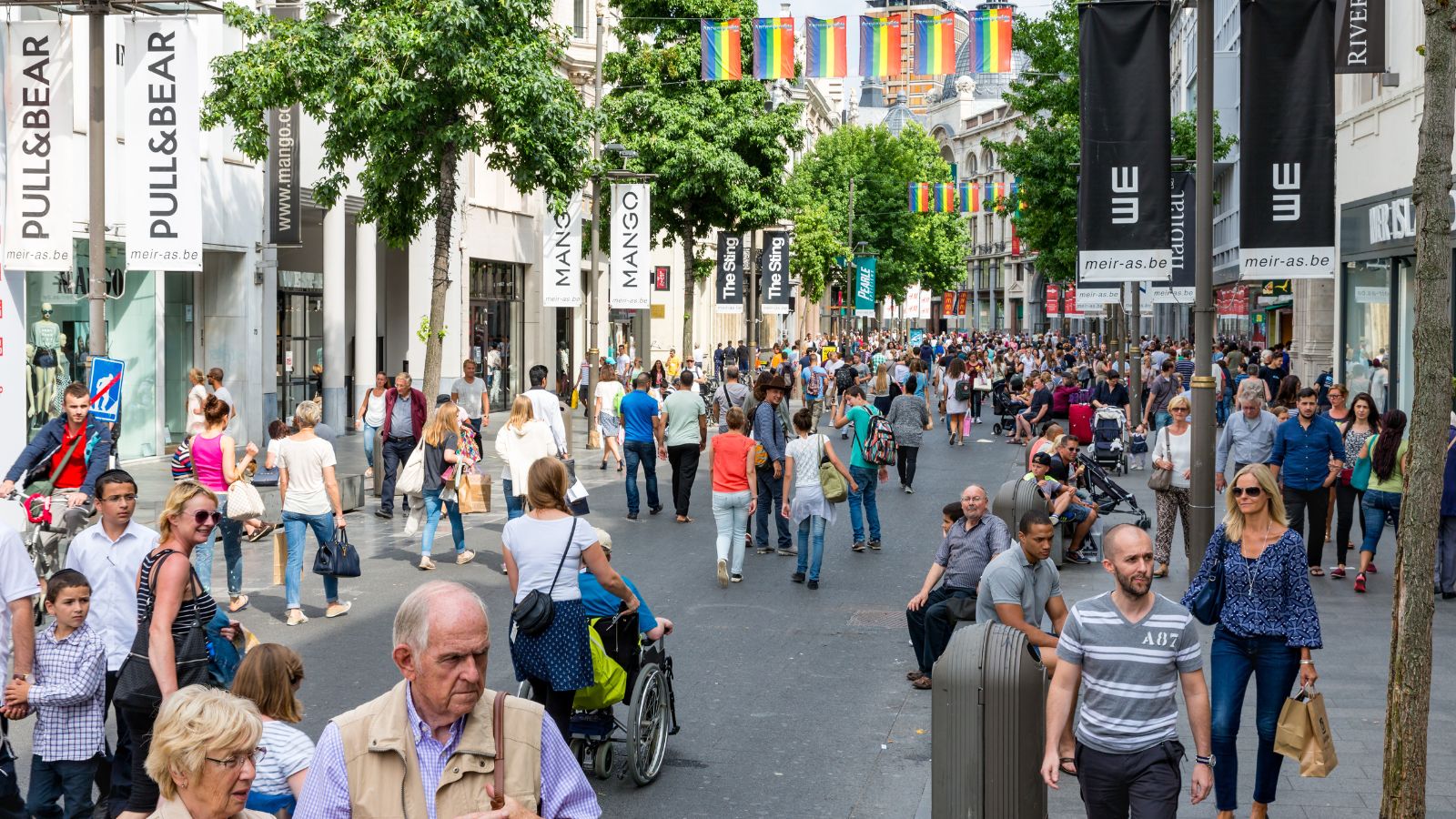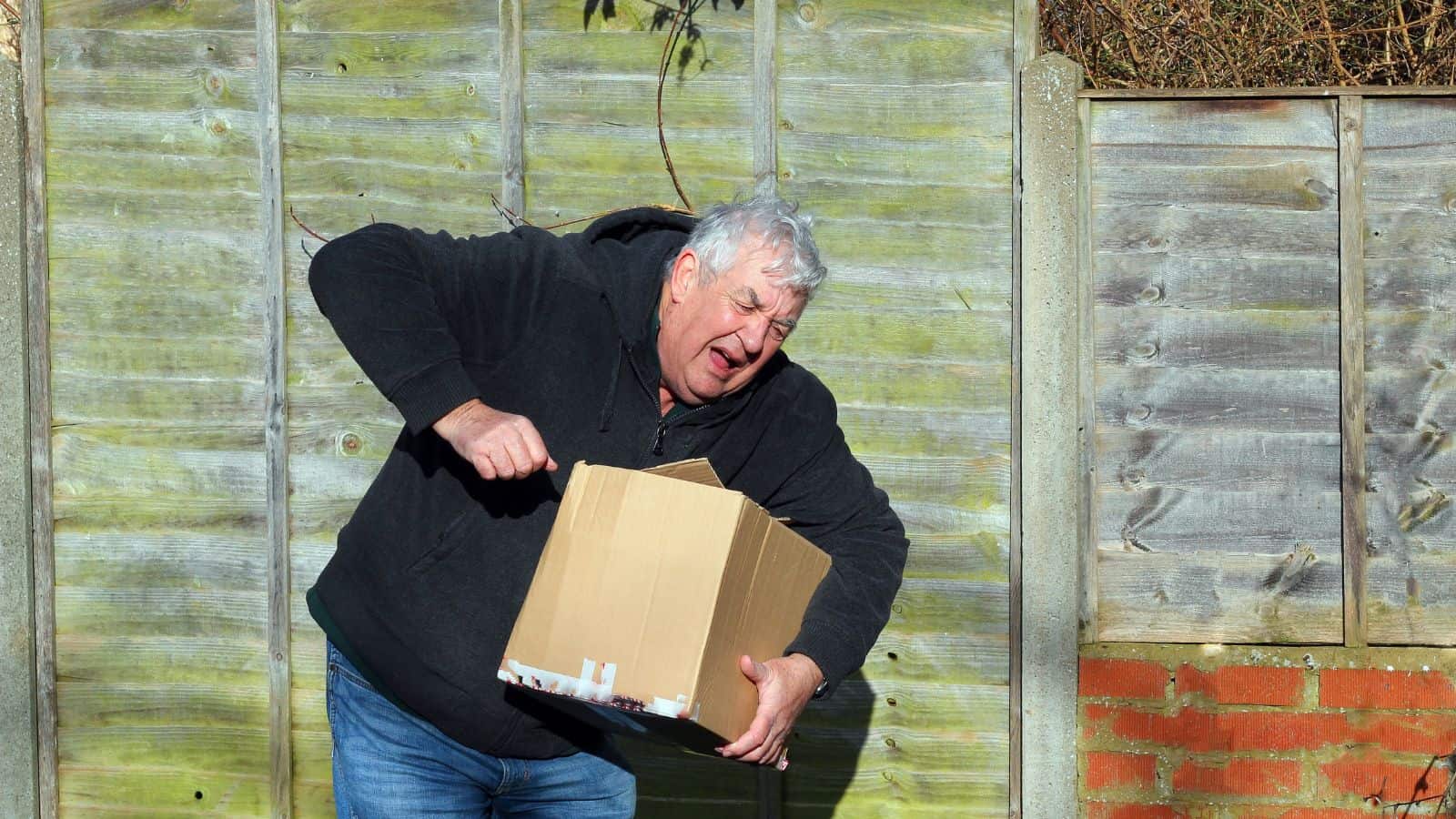Ageing is a natural part of life, and with it comes a change in perspective. As we get older, our tolerance for certain things decreases, and we find ourselves more easily irritated by things we might have once brushed off. Here are 20 things people can’t stand as they age.
Noise Pollution

“Noise pollution impacts millions of people on a daily basis,” says National Geographic, and as people age, they often become more sensitive to loud noises. Whether it’s the blaring music from a neighbour’s party, the constant hum of traffic, or the intrusive sound of construction work, noise pollution can become a major annoyance.
Disorganisation

Disorganisation becomes more irritating as a person gets older, and the clutter that might have seemed like a sign of a busy life now feels overwhelming and chaotic. An untidy home or workspace can lead to increased stress and frustration.
Rude Behaviour

As we get along in years, our patience for rudeness diminishes significantly. Whether it’s someone cutting in line, speaking impolitely, or not showing basic manners, such behaviour becomes increasingly intolerable. With age comes a heightened appreciation for kindness to—and from—everyone.
Technology Glitches

While technology is fantastic, its hiccups can be particularly exasperating for older adults, including slow internet, software updates that take forever, and devices that don’t work as expected. These can quickly lead to frustration. The constant need to keep up with the latest tech can feel exhausting and sometimes unnecessary.
Poor Customer Service

As people age, their expectations for good customer service rise. Long wait times, unhelpful staff, and a lack of courtesy can be extremely aggravating. Older adults value efficient, respectful, and helpful interactions; anything less can feel like a significant inconvenience.
Traffic Jams

While traffic jams are annoying at any age, they become particularly bothersome as we get older. The general inconvenience of wasting time and being stuck in one place becomes harder to tolerate. Many find themselves preferring to avoid driving during peak hours whenever possible.
Crowded Places

Crowds can become more uncomfortable as we age. The jostling, the noise, and the sheer number of people can feel overwhelming. Whether it’s a packed shopping centre, a busy concert, or a crowded public event, many older adults find themselves avoiding these situations in favour of more tranquil environments.
Inconsiderate Neighbours

When you’re living close to others it can bring out the best and worst in people. As we get older, inconsiderate neighbours—those who are loud, messy, or disrespectful—can become a significant source of stress. Instead, the desire for a peaceful and respectful living environment grows stronger.
Forgetfulness

While forgetfulness is a natural part of ageing, it can also be a source of frustration. Misplacing keys, forgetting appointments, or struggling to recall names can be irritating and sometimes worrying. Many find themselves developing new strategies to stay organised and remember important details.
Physical Discomfort

Ageing often comes with physical discomforts that can be hard to ignore, like aches, pains, and general stiffness. These can make daily activities more challenging, as physical issues can lead to frustration, especially when they interfere with the ability to enjoy favourite hobbies or complete simple tasks.
Excessive Heat or Cold

Extreme temperatures can also be more challenging to deal with as we age. Excessive heat can lead to discomfort and health issues, while the cold can exacerbate joint pain and make staying warm a priority. Many older adults find themselves more sensitive to temperature changes and prefer moderate climates.
Long Waits

As we age, our patience for long waits decreases, such as waiting in line, on hold with customer service, or for an appointment. These extended waits can be particularly irritating. The desire for efficient service and prompt attention grows stronger, making long delays harder to endure.
Unreliable Transportation

Reliability becomes crucial with age, and unreliable transportation can be a major source of stress. Whether it’s public transport that’s frequently late or a personal vehicle that’s constantly breaking down, the unpredictability can be particularly bothersome, whereas consistency and reliability become more valued.
Complex Instructions

As people get older, they often prefer simplicity over complexity. Complex instructions, whether for assembling furniture, operating a new device, or following a recipe, can be frustrating. The desire for straightforward, easy-to-understand directions grows stronger, and overly complicated processes are a turn-off.
Poor Lighting

Good lighting also becomes more important with age, as poorly lit environments can strain the eyes and make it difficult to see clearly, leading to frustration. Adequate lighting is essential for reading, cooking, and other daily activities—and the lack of it can be particularly bothersome.
Health Insurance Hassles

Trying to sort through health insurance can become increasingly frustrating the older you get, thanks to the complexities of coverage, the hassle of dealing with claims, and the often confusing policies, all of which can lead to significant stress. Older adults value straightforward, transparent healthcare services and can become easily irritated by bureaucratic hurdles.
Lack of Respect

Respect becomes even more significant the older you get. The lack of respect from younger generations, service providers, or even peers can be particularly grating. Older adults have lived through a lot and expect to be treated with the courtesy and regard they deserve.
Unnecessary Noise

Like loud chewing, constant tapping, or other repetitive sounds, unnecessary noise can become particularly irritating. As we move along in years, our tolerance for these small annoyances decreases, and the desire for a quieter, more peaceful environment grows stronger.
Social Media Drama

The constant drama and negativity on social media can become exhausting, too. Many older adults find themselves less interested in online battles and more focused on real-life connections. The endless stream of arguments, complaints, and sensationalism can feel like a waste of time and energy.
Bad Diets

And finally, as we age, the importance of a good diet becomes clearer. Unhealthy eating habits can become a source of irritation, so watching others make poor dietary choices, especially loved ones, can be particularly frustrating. There’s a greater appreciation for nutritious, balanced meals and their benefits to overall well-being.







